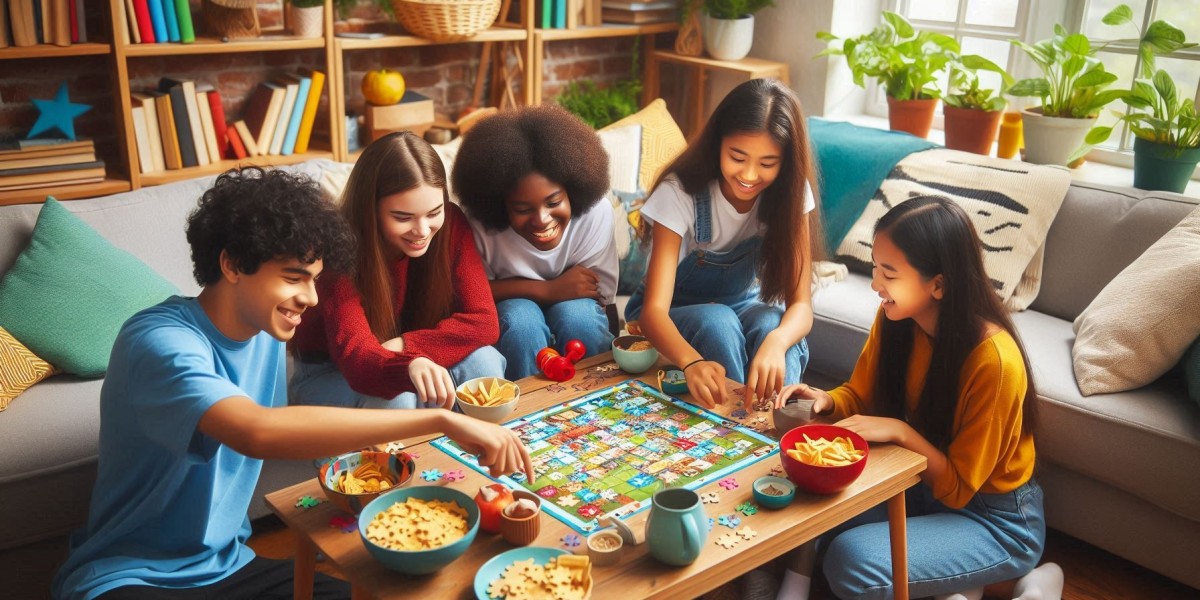Word Combination Games: The Ultimate Guide to Vocabulary-Building Puzzles
Introduction to Word Combination Games
Word combination games have emerged as one of the most engaging and educational categories in the puzzle game genre. These brain-teasing challenges require players to connect, merge, or rearrange letters to form valid words, offering a perfect blend of entertainment and cognitive exercise. From classic anagram puzzles to innovative digital hybrids, word combination games provide endless opportunities to expand your vocabulary while having fun.
In this comprehensive guide, we'll explore everything you need to know about word combination games, including their benefits, popular variations, winning strategies, and where to find the best versions. Whether you're a word game enthusiast or a casual player looking to sharpen your language skills, these puzzles offer rewarding challenges for all skill levels.
What Are Word Combination Games?
Word combination games are puzzles that involve:
Merging letters or word fragments
Rearranging existing letters
Connecting words through shared elements
Building new words from given components
Key Characteristics
✔ Combine vocabulary skills with logical thinking
✔ Range from simple to extremely challenging
✔ Available in physical and digital formats
✔ Often include time or move limitations
✔ Provide measurable cognitive benefits
Top 10 Word Combination Games
1. Scrabble (and Scrabble Variants)
The classic word-building board game where players:
Create interlocking words on a grid
Score points based on letter values
Use premium squares for bonus points
Digital Version: Words With Friends
2. Boggle
The fast-paced word search game featuring:
4x4 or 5x5 letter grid
Timed rounds (typically 3 minutes)
Points for unique words found
Digital Adaptation: Boggle With Friends
3. Bananagrams
A portable word game that involves:
Racing to build crossword grids
No turns - all play simultaneously
Fast-paced tile-drawing mechanics
4. Wordscapes
Popular mobile app combining:
Crossword-style puzzles
Letter wheel for word formation
Beautiful landscape backgrounds
5. Text Twist
Classic online game where players:
Rearrange given letters
Find all possible words
Must use all letters for the longest word
6. Wordle
The viral daily word game featuring:
Six attempts to guess a 5-letter word
Color-coded feedback system
Shareable results grid
7. Anagrams
Traditional word scramble game:
Rearrange letters to form new words
Can be played with cards or digitally
Variations include speed anagrams
8. Word Connect
Mobile puzzle game with:
Letter tiles to connect
Themed level progression
Bonus rewards for long words
9. Jumble
Newspaper classic involving:
Scrambled word puzzles
Cartoon with hidden answer
Often part of larger puzzles
10. Word Ladder (Doublets)
Lewis Carroll's word transformation game:
Change one letter at a time
Each step must be a valid word
Example: COLD → CORD → CARD → WARM
Cognitive Benefits of Word Combination Games
Regular play provides measurable mental advantages:
1. Vocabulary Expansion
Exposure to new words in context
Reinforcement of spelling patterns
Learning word roots and derivatives
2. Improved Memory
Strengthens recall of word spellings
Enhances visual memory of letter patterns
Boosts working memory capacity
3. Enhanced Problem-Solving
Develops strategic thinking skills
Improves pattern recognition
Teaches systematic approaches
4. Mental Flexibility
Encourages creative thinking
Develops ability to see multiple solutions
Strengthens cognitive adaptability
How to Master Word Combination Games
1. Start With Common Prefixes/Suffixes
Look for:
Common beginnings (UN-, RE-, PRE-)
Frequent endings (-ING, -TION, -MENT)
Word roots (AUTO, BIO, GRAPH)
2. Identify Vowel Patterns
English words typically need vowels:
Note vowel positions
Common vowel combinations (EA, AI, OU)
Y as sometimes vowel
3. Look for Small Words Within Words
Example: In "TEACHER" you can find:
TEACH
EACH
HER
HEAR
CHEAT
4. Practice Letter Frequency Awareness
Most common English letters:
E
A
R
I
O
5. Use Process of Elimination
For challenging puzzles:
List possible letters alphabetically
Cross off impossibilities
Test remaining options
Choosing the Right Word Combination Game
Consider these factors when selecting:
By Difficulty Level
Beginner: Wordscapes (early levels), Word Cookies
Intermediate: Boggle, Text Twist
Advanced: Scrabble tournament play, Cryptograms
By Time Commitment
Quick Play: Wordle (5 min), Jumble (2 min)
Moderate Session: Bananagrams (15 min)
Extended Play: Scrabble (60+ min)
By Learning Goal
Vocabulary Building: Wordscapes, Word Connect
Spelling Improvement: Boggle, Text Twist
Pattern Recognition: Anagrams, Word Ladder
Digital vs. Physical Word Games
| Feature | Digital Versions | Physical Games |
|---|---|---|
| Convenience | Play anywhere | Tactile experience |
| Feedback | Instant validation | Manual checking |
| Variety | Infinite puzzles | Fixed components |
| Social Aspect | Online multiplayer | Face-to-face interaction |
| Portability | All devices | Need to carry pieces |
Where to Find Quality Word Combination Games
Mobile Apps
App Store (iOS)
Google Play (Android)
Amazon Appstore
Online Platforms
Pogo.com
Arkadium
Dictionary.com games
Physical Retailers
Local game stores
Bookstores
Major retailers (Target, Walmart)
Newspapers & Magazines
New York Times (Wordle, Crossword)
USA Today (Jumble, Word Roundup)
Penny Press puzzle books
Frequently Asked Questions
Q1: What's the best word combination game for beginners?
A: Wordscapes and Word Cookies offer gentle introductions with helpful hints.
Q2: Can word games really improve my vocabulary?
A: Absolutely! Regular play exposes you to new words in context, enhancing retention.
Q3: Are there competitive word game tournaments?
A: Yes! Scrabble has a professional competitive scene, and digital games often host events.
Q4: What's the difference between anagrams and word scrambles?
A: Anagrams typically form new words from existing ones, while scrambles simply rearrange letters.
Q5: How often should I play to see cognitive benefits?
A: Just 15-20 minutes daily can yield noticeable improvements over time.
The Future of Word Combination Games
Emerging trends include:
1. AI-Generated Content
Infinite unique puzzles
Adaptive difficulty
Personalized word suggestions
2. Augmented Reality
Spatial word arrangement
Environmental integration
Shared multiplayer experiences
3. Educational Applications
Customized learning paths
Progress tracking
Curriculum-aligned content
4. Social Gaming
Team-based word challenges
Live competitive events
Shared puzzle creation
Conclusion: Why Word Combination Games Matter
Word games offer far more than simple entertainment - they're powerful tools for cognitive development, vocabulary building, and mental sharpening. The diverse range of available formats ensures there's a perfect word puzzle for every preference and skill level, from relaxing solo play to competitive social experiences.
Also Check Out More Game : word games








